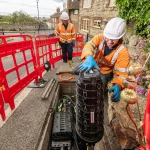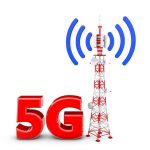EE Named Fastest and Most Reliable UK Mobile Broadband Operator

RootMetrics has today published their H2 2013 Rootscore Report, which uses data collected from 840,000 network and speed tests conducted across the United Kingdom to reveal which mobile operator is best for Internet access, calls and texting. Suffice to say that EE topped the table in all respects, while Vodafone was almost always at the bottom.
Unfortunately the report, which claims to offer an “unbiased, transparent characterisation of UK mobile performance from a consumer’s perspective“, doesn’t give us the Mobile Broadband performance in Megabits / sec (Mbps) and nor does it split the results to show how 3G and 4G compared when separated. This is also important because most of the tests occurred before Three UK had launched their 4G service, while O2 and Vodafone only had limited 4G coverage (bad comparison?).
Advertisement
Instead RootMetrics have chosen to categorise all of their results by a simplified, yet poorly explained, metric that converts into a table of points, with 100 naturally presenting the highest (best) score and 0 being the worst. In this form EE comes top for “overall performance” with a score of 84.6, while Three UK came in at 73.5, O2 followed on 66.5 and Vodafone suffers a dismal last with 52.4.
Olaf Swantee, CEO of EE, said:
“Today’s results show that the EE network gives customers everywhere in the UK the best mobile experience. This is down to our ongoing investment in introducing 4G, increasing 3G capacity and upgrading 2G, while also spending hundreds of millions on phone call quality. We encourage the most rigorous independent testing of mobile networks in the UK, and strive to set new standards in performance and reliability.”
The other results break down as follows, although it’s worth noting that EE somehow managed to achieve a score of 102.4 for Network Speed.
Voice Calls
1 EE 86.3
2 O2 79.2
3 Three 76.3
4 Vodafone 66.6Mobile Internet
1 EE 81.0
2 Three 67.1
3 O2 48.4
4 Vodafone 30.2Text
1 EE 93.0
2 O2 90.8
3 Three 90.4
4 Vodafone 88.3Network Reliability
1 EE 77.7
2 Three 74.2
3 O2 59.1
4 Vodafone 40.2Network Speed
1 EE 102.4
2 O2 75.9
3 Vodafone 72.9
4 Three 69.0
EE claims to have invested over £1 billion into its network since 2012 and they plan to spend a further £500 million expanding 4G coverage to the next 25% of the population and enhancing phone call quality (EE’s 4G network currently covers more than 70% of the UK population via 175 cities and towns).
Indeed it’s likely the 9-12 month head start that EE has enjoyed with deploying 4G (LTE) in the 1800MHz band is what has given them such a strong lead above, which is also why we would have liked to see the results for 3G performance being split out.
Advertisement
Meanwhile it’s also interesting to look at how the scores for Network Speed differ between the regions, not least because most of this morning’s reports have failed to reflect that.
Network Speed – England
1 EE 103.7
2 O2 76.7
3 Three 72.5
4 Vodafone 68.7Network Speed – Northern Ireland
1 EE 94.6
2 Three 73.1
3 O2 67.0
4 Vodafone 66.5Network Speed – Scotland
1 EE 83.0
2 Vodafone 70.0
3 Three 68.9
4 O2 68.0Network Speed – Wales
1 EE 79.4
2 O2 67.1
3 Three 66.6
4 Vodafone 62.4
The good news is that if you do want to see how the networks compare in terms of Mobile Broadband speeds, when measured with Mbps, then you can look at some of RootMetrics most recent full reports for Manchester and Sheffield to get an idea (these helped to build the above study).
For example, in Manchester EE’s average mobile broadband download speed increased from 15.2Mbps to 19.8Mbps between H1 and H2 2013, and their average upload speed rose from 9.4Mbps to 13.0Mbps. Meanwhile O2 scored 10.7Mbps for downloads, Vodafone hit 11.3Mbps and Three UK touched 8.4Mbps. We have asked for the overall report to reflect Mbps and split 3G and 4G performance but in all likelihood we won’t get either.
Mark is a professional technology writer, IT consultant and computer engineer from Dorset (England), he also founded ISPreview in 1999 and enjoys analysing the latest telecoms and broadband developments. Find me on X (Twitter), Mastodon, Facebook, BlueSky, Threads.net and Linkedin.
« ISPA UK Calls for Changes to Tackle Vexatious Consumer ISP Complaints






















































Comments are closed